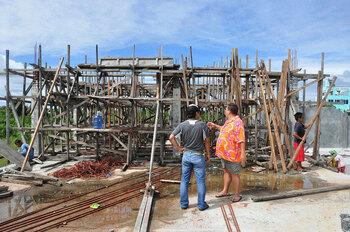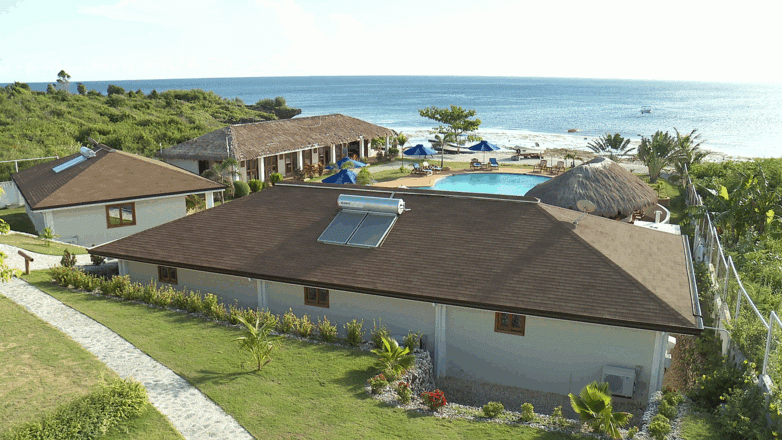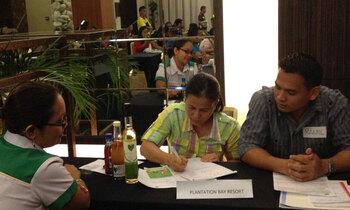Approach
The project is active in three areas:
-
Information and awareness raising on green economic development
The project is working to increase awareness within MSMEs about climate change and about the adoption of green strategies that could reduce the negative of climate change impacts on their operations, while also enhancing their competitiveness.
-
Business promotion and matchmaking
Enterprises are being brought together with green business service providers, including advisory services and financing, and are learning about products and technologies that can help them implement their measures.
-
A green policy framework for the Department of Trade and Industry (DTI)
The DTI receives support in establishing a policy framework for the mainstreaming of green initiatives in its programmes and projects, and to influence other government agencies to do the same.
The project began in 2013 in the pilot provinces of Cebu and Bohol. In cooperation with the DTI it has so far been extended to 17 further provinces, with another four being added in the course of 2016. The approach was initially introduced in the tourism sector and has since been expanded to include other priority sectors such as processed foods, coffee and cacao, organic fertilisers, and household goods.
Results
In the 19 provinces involved in the project, more than 450 enterprises have adopted green practices, most commonly in the areas of energy efficiency, solid waste management and locally sourced, environmentally friendly supplies. This has enabled enterprises to benefit from lower production costs and increased sales, while reducing their adverse environmental impacts. A number of MSMEs have also developed green or innovative products.
In the tourism, manufacturing and retail sectors, 66 enterprises have gained accolades for their greening efforts, including five that have received the prestigious ASEAN Green Hotel Award.
By integrating green elements into its programmes and projects, DTI has demonstrated its strong commitment to promoting green economic development. It has established a Green Growth Core Group, composed of management staff from various departments, which is responsible for policy-level steering of the green economic development initiatives. The Ministry, the Board of Investment (BOI) and the respective industry associations have also integrated green measures into selected industry roadmaps (copper, social housing, paper, plastics, automotive parts and furniture), which will shape these sectors over the next 10 years.


